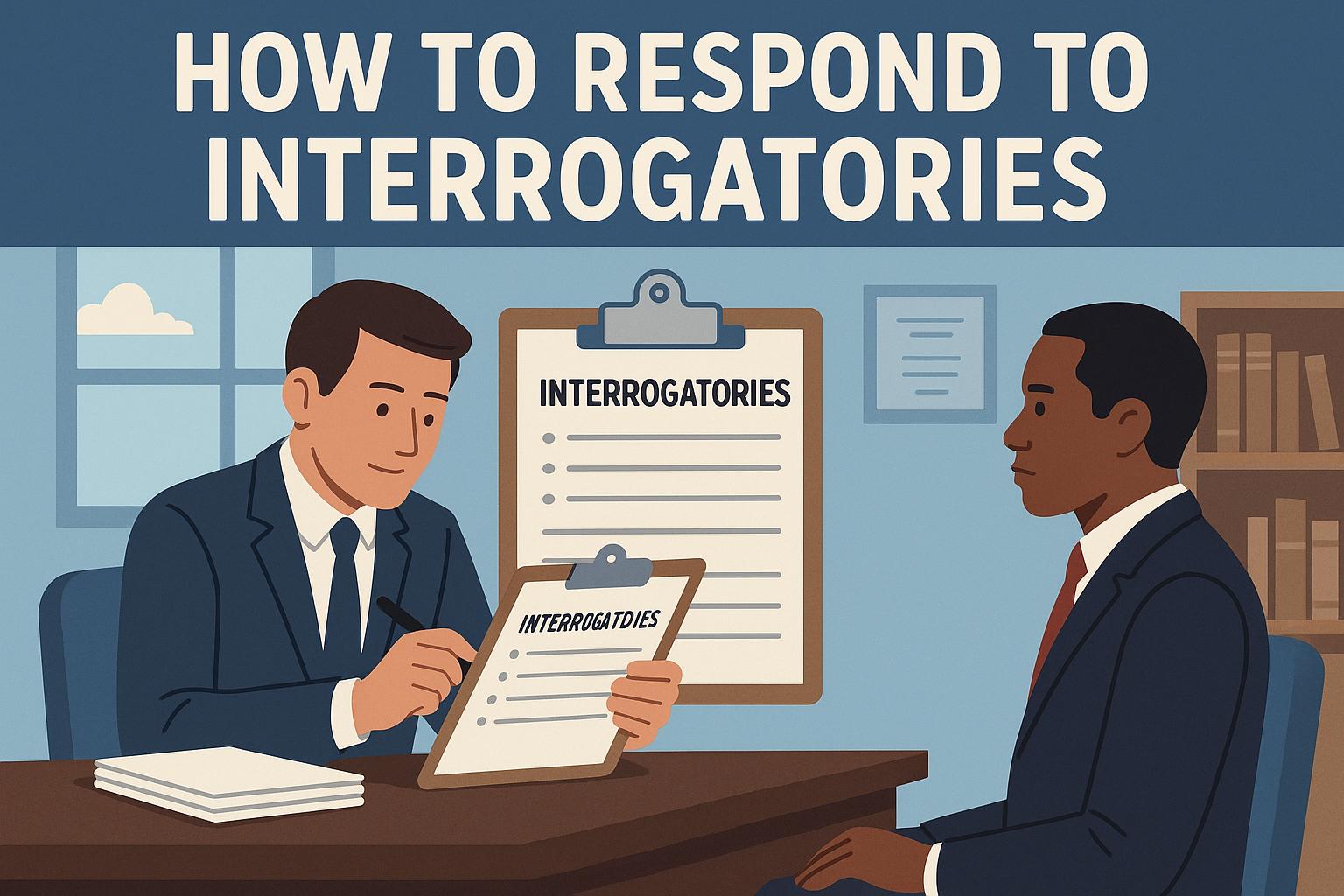Understanding Interrogatories
Interrogatories play a pivotal role within the discovery phase of litigation. Serving as a structured mechanism, they consist of formal written questions exchanged between parties embroiled in a lawsuit. The principal objective of interrogatories is to assist in disclosing pertinent factual information, which can significantly influence the outcome of a case. Thus, understanding how to properly handle interrogatories is essential for any party involved in a legal proceeding.
Receiving Interrogatories
The importance of the initial steps taken upon receiving interrogatories cannot be understated, as these steps lay the groundwork for a sound response strategy.
Read Carefully: One of the primary actions is to meticulously read each interrogatory. This careful reading helps ensure comprehension of what each question seeks to uncover. Misinterpretations can lead to responses that are off-target, which could detrimentally affect the case. By thoroughly understanding each question, you reduce the risk of submitting incorrect or irrelevant information.
Note Deadlines: Deadlines are a crucial aspect of the legal process. Upon receipt of interrogatories, identifying and noting the deadline for your response is paramount. Failure to respond within the designated timeframe can have potential adverse legal consequences, ranging from weakened legal standing in the case to potential penalties, depending on jurisdictional rules.
Consult with Legal Experts
Engaging the expertise of legal professionals is often beneficial when responding to interrogatories. Legal matters can be intricate and soliciting guidance from those well-versed in the law can be invaluable.
Legal Guidance: Attorneys offer legal insights and guidance, ensuring compliance with legal standards when crafting your responses. This is particularly crucial as precise and compliant responses fortify your position in the lawsuit.
Clarification: Legal experts are also adept at deciphering the complexities of questions you might face. Furthermore, they can advise on when it might be necessary or advantageous to object to certain questions, thus protecting your interests.
Drafting Responses
Once you have a robust understanding of each interrogatory, the focus shifts to drafting comprehensive responses.
Accuracy: Strive for accuracy by offering truthful answers. The legal ramifications of dishonest or misleading information can be severe and have a lasting impact on your case. Accurate responses also enhance the credibility of your position.
Objectivity: Stay objective in your answers. Address only what is directly asked without volunteering superfluous information, which might inadvertently introduce weaknesses or further inquiries.
Clarity: Utilize clear and unambiguous language in your responses. While technical language might occasionally be necessary, ensure that your answers are understandable. This clarity facilitates a smoother discovery process and reduces the potential for disputes or misunderstandings.
Objecting to Interrogatories
Interrogatories can sometimes include questions that warrant objections. Understanding when and how to object is an essential skill in legal proceedings.
Legal Grounds: Valid objections arise when questions are deemed irrelevant, overly broad, or when they encroach on privileged information. Recognizing and asserting these grounds safeguards your legal interests.
Procedure: Following the correct procedural steps when objecting is crucial. Clearly state the grounds for each objection to establish a transparent and defensible position. This includes well-documented rationale in the response.
Review and Finalize: A thorough review of your drafted responses before submission is crucial. Check the completeness and accuracy of each answer to ensure no critical details are omitted. Engage with legal experts as needed to validate the sufficiency of your responses.
The process of responding to interrogatories is indeed critical within many legal contexts. Approaching this task with a methodical and clear strategy enhances the efficacy of your participation in the discovery phase. By doing so, you contribute significantly to the broader litigation process, paving the way for a more informed and effective legal strategy.
